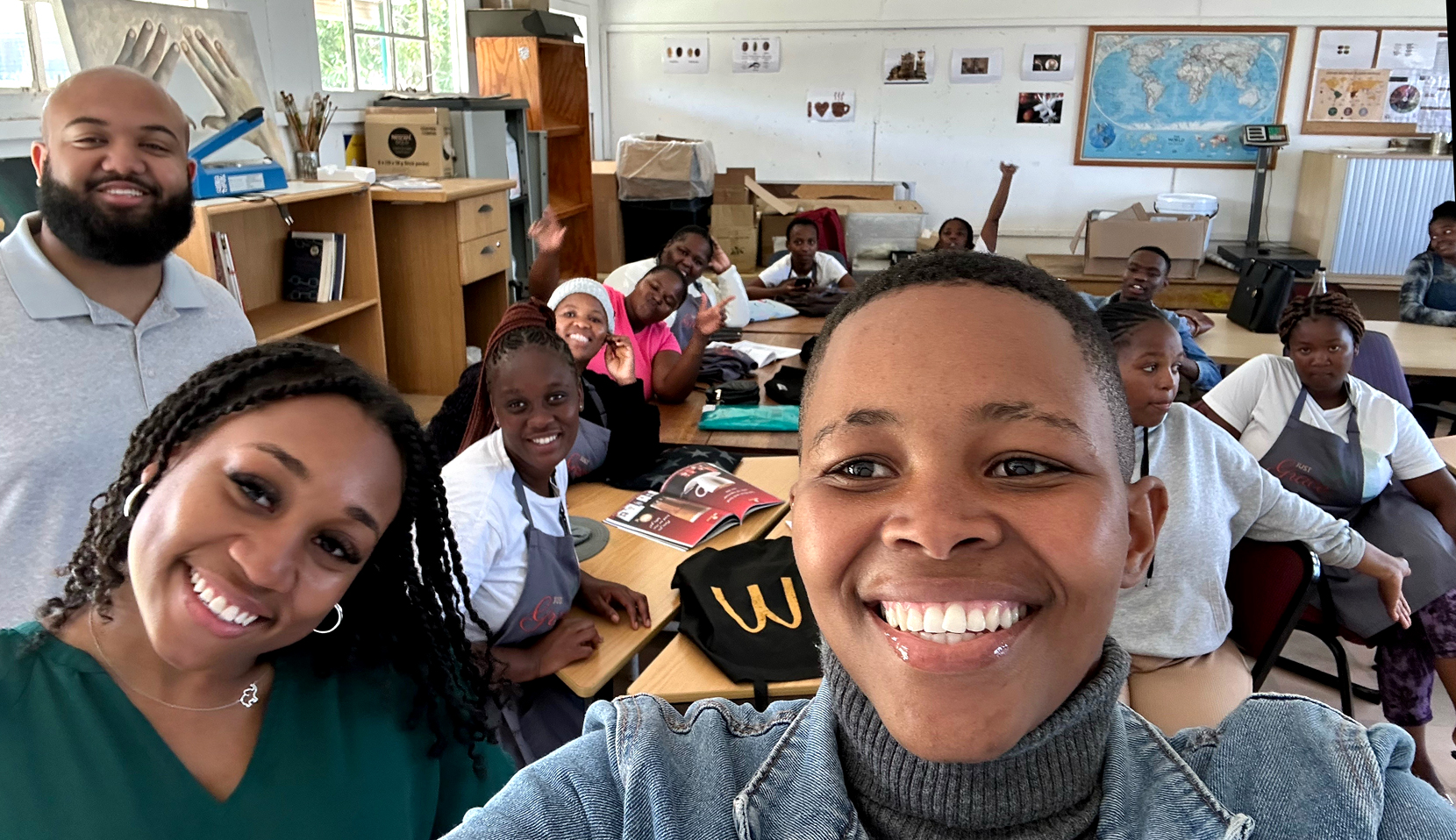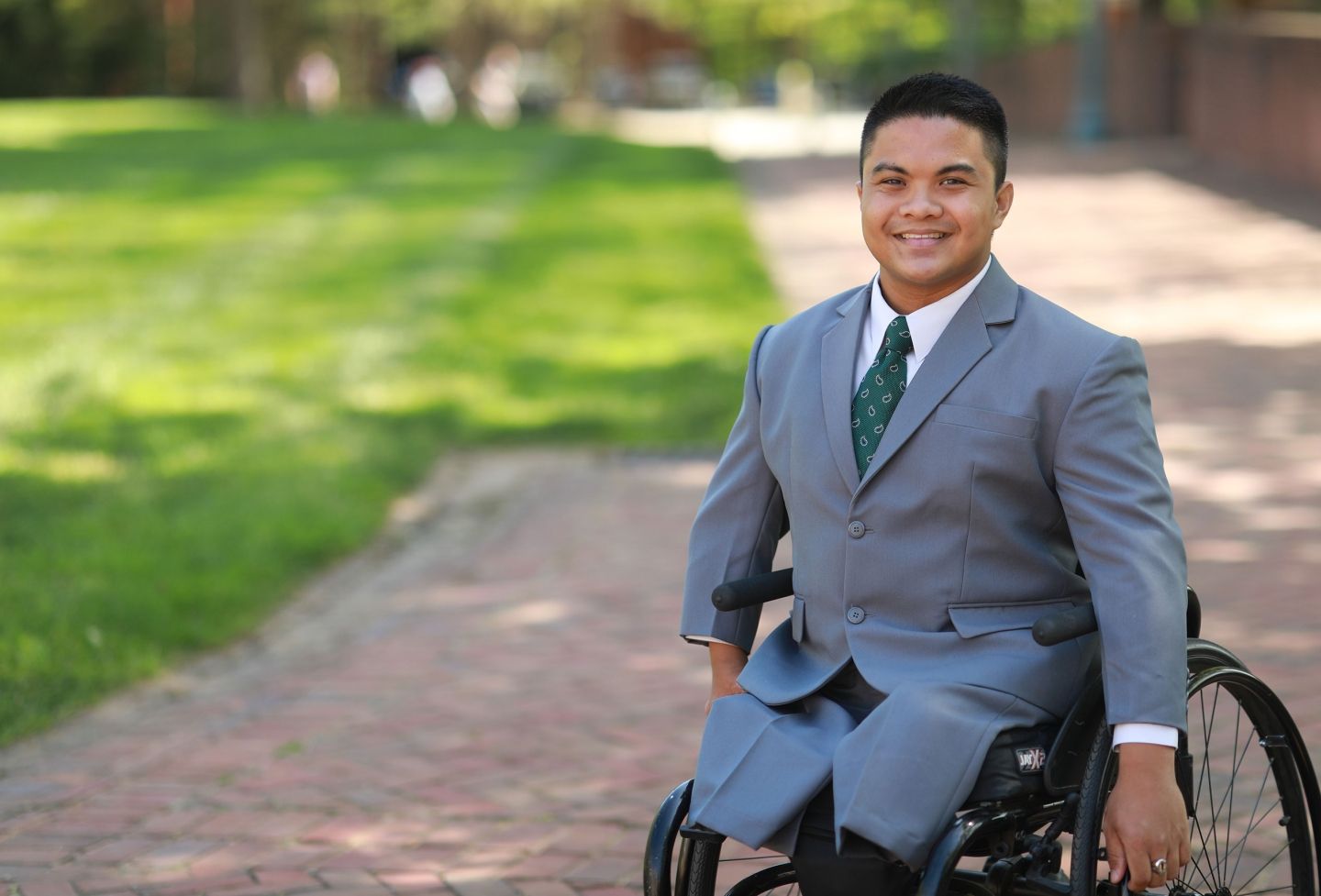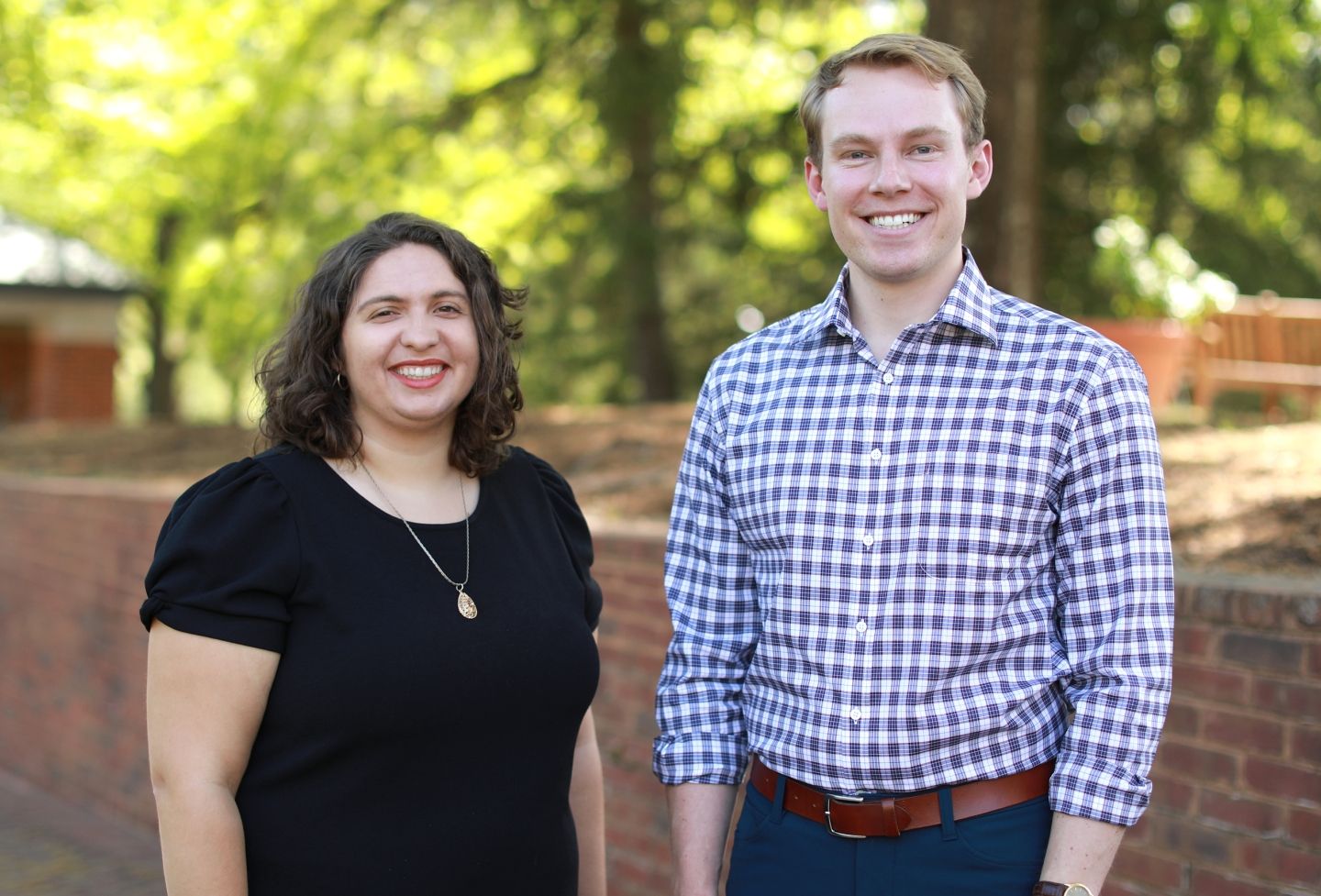Members of the Black Law Students Association at the University of Virginia School of Law flew 20 hours to visit Cape Town, South Africa, during spring break to conduct and present legal research on international hate speech law to attorneys with the law firm Norton Rose Fulbright.
The country is still working to erase the harm of apartheid, a racial segregation system established by white colonists that lasted roughly 40 years. BLSA members spent hundreds of volunteer hours helping create a toolbox of relevant international precedent for attorneys working on cases that may be novel for South Africa.
“Since [South Africa’s] constitution was revamped after apartheid, there’s not a whole lot of case law,” BLSA President Keegan Hudson ’24 said. “It’s probably the best place for us to do pro bono work that relates to race and the law.”
Once they arrived in Cape Town, the students partnered with Norton’s pro bono team to conduct the research and present their findings in person. Each student focused on a different country and its history of race-motivated hate speech leading to atrocities, including the Rwandan genocide, the Holocaust, Australia’s treatment of its indigenous population and many others.
Hudson said he appreciated the way Norton lawyers took the time to introduce the students to the South Africans their research will ultimately benefit.
One day during the trip, the students visited one of many townships — impoverished neighborhoods where, during apartheid, many Black people were relocated to enforce segregation.
During the visit, the students toured a school that teaches trades like sewing and food service. Hudson and first-year law student Laura-Louise Rice helped prepare lunch for students and staff alongside community members, and said they were touched by their kindness in return.
 Keegan Hudson and Laura-Louise Rice participated in a barista training class while visiting a township in Cape Town.
Keegan Hudson and Laura-Louise Rice participated in a barista training class while visiting a township in Cape Town.
The students also learned about newer challenges the country is experiencing. Because South Africa faces recurring waves of deadly anti-immigrant violence, the students visited a refugee clinic at the University of Cape Town, where they observed consultations with refugees whose immigration status was in flux.
“Obviously the research we were doing and the history we were learning about is real, but seeing people actively experiencing the uncertainty of, ‘Will my family be torn apart?’ stuck with me,” Rice said.
Through these experiences and learning about South Africa’s constitutional history, Rice said she has come to appreciate what South Africa has accomplished through law since apartheid.
“Their ability to overhaul their constitution to value dignity, social justice and righting previous wrongs is something that I think we talk about so much in the United States but fundamentally is not something that’s set in stone here,” Rice said. “I didn’t really think about that before the trip — how powerful the law can be and how powerful a constitution really can be.”
BLSA students apply for the international service trip in October. Applicants must be able to explain their community service involvement through BLSA and how they think the trip will enhance their law school experience. All expenses are covered by donations from UVA Law alumni and law firms such as Norton Rose Fulbright.
Founded in 1819, the University of Virginia School of Law is the second-oldest continuously operating law school in the nation. Consistently ranked among the top law schools, Virginia is a world-renowned training ground for distinguished lawyers and public servants, instilling in them a commitment to leadership, integrity and community service.


